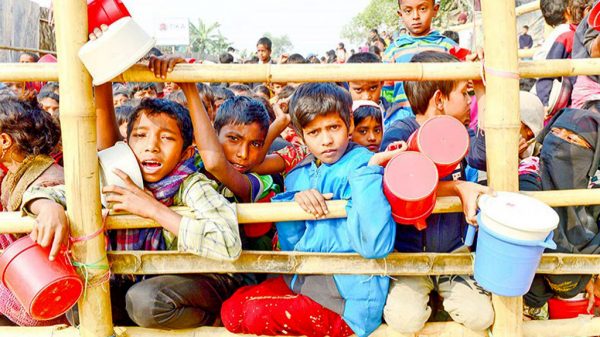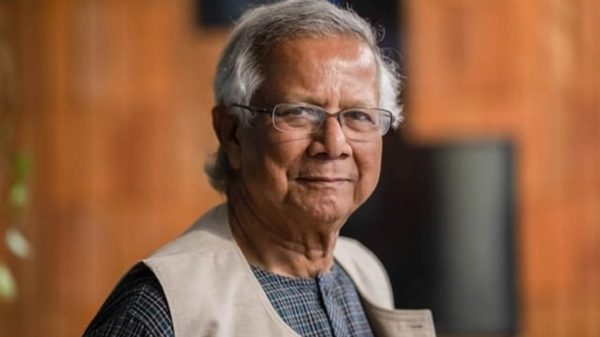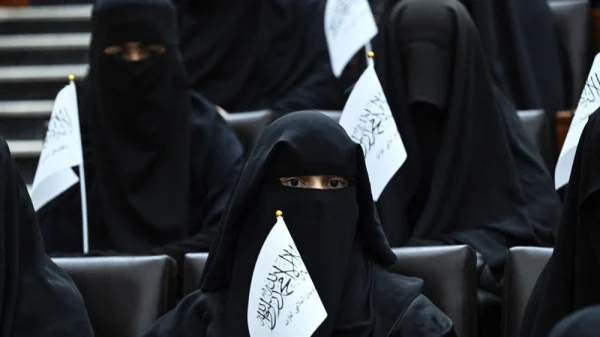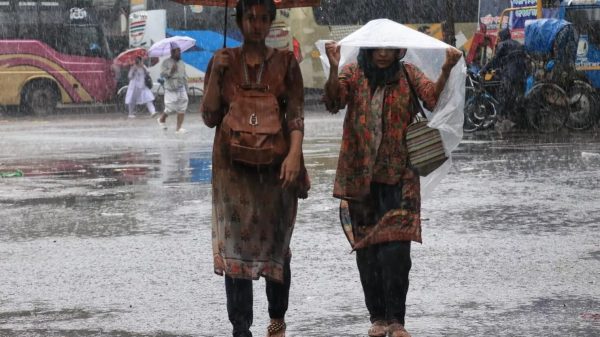Frustration grows as Rohingya youths face grim reality

Shawdesh Desk:
Over half a million Rohingya children are growing up in Bangladesh camps amid frustration, without hope for the future, and with fears of being drawn into extremism, drug trade, and human trafficking.
Bangladesh houses 979,306 Rohingyas in 33 camps in Cox’s Bazar and Bhasan Char Island as of April 30, 2024, according to UN agencies, though the Bangladesh government estimates the figure to be close to 1.2 million.
About 52 per cent of the Rohingyas are children. Many of them were born in Bangladesh camps after the mass exodus from Myanmar in 2017.
According to the UN children’s agency UNICEF, within Cox’s Bazar camps, there are 3,565 learning centres supported by education sector partners, including 3,056 learning centres supported by itself.
There are also 31 cross-sectoral shared spaces used for education and 2,233 community-based learning facilities.
UNICEF country representative Sheldon Yett said that through these learning centres, they could provide formal education and alternative learning, based on the Myanmar curriculum to roughly 260,000 children.
‘We aim to further ensure that children have the desirable learning levels and skills,’ Yett told New Age.
UNICEF data, however, suggests that many Rohingya children, particularly those aged between 3-5 years and 15–18 years, are still out of school.
With no tertiary-level education permitted in the camp, most of the Rohingya students end their education after Class X.
For the 2024-2025 academic year starting in early August, Class XI will be offered, UNICEF said, adding that Class XII will be offered next year.
Sixteen-year-old Rohingya boy Salim Ullah, who was passing idle time at a community centre jointly run by the United Nations High Commissioner for Refugees and Bangladeshi non-profit BRAC inside Camp-4 on June 9, said that he was aiming to be a teacher after completing his education.
‘I used to go to school here for the past few years. But now I mostly learn from private teachers,’ said Salim Ullah.
‘I want to be a teacher. If it is not possible, I want to go to Malaysia or any other country to support my family,’ Salim Ullah, accompanied by a few other Rohingya children of his age, said.
Ali Zohar, who is a bit older than Salim, said that they spent most of their time playing carom at the recreational facilities because there was not much else to do.
‘We always live in fear as we see people often being kidnapped or killed here,’ said Zohar.
Sometimes young children also join them in recreational facilities with little or no playing opportunities for them in open spaces.
Eight-year-old Mohammad Faisal told New Age that he had no memory of Myanmar and was not sure if he would ever go back to the country.
‘I only hear stories of Myanmar from my parents. But I don’t know what it looks like,’ said Faisal.
Against the backdrop, Rohingyas will observe World Refugee Day in camps with some activities supported by UNHCR and other humanitarian agencies.
UNHCR and BRAC officials said that they run several such recreational facilities inside the camps to keep Rohingya youths and adults engaged in positive activities so that they could not be distracted by other elements present in the camp.
In spite of the UN agency and its local partners’ efforts, the Rohingyas’ frustration at being forced to live in a camp on the harsh plain and hillside is evident in every corner of the camp, with most adults and children simply strolling aimlessly.
Rohingya parents mostly worry about their children due to the rising crime in the camp.
According to the Rapid Action Battalion, 64 Rohingyas were killed in camps in 2023, and 20 were killed until the first week of June 2024.
Speaking to New Age at camps for the Rohingya people on June 9 and 10, a number of Rohingyas stated that they had accepted their fate because there was no way for them to return to Myanmar anytime soon unless the situation improved across the border dramatically.
They are, however, mostly worried about their children’s future, as they are growing up without knowing what lies ahead of them.
It has led to a kind of situation that has forced many Rohingyas to take support for their mental health from hospitals operating in the camp.
Al Moksena Najat, a physiologist at a clinic run by UNHCR and Gonoshasthaya Kendra in Camp-4, said that every day five to seven Rohingyas come to their facilities to receive counselling services.
‘Sixty per cent of them were suffering from depression and anxiety,’ said Najat.
Kamal Uddin, head of the psychology department at Dhaka University, said that mere counselling services would not do any good for Rohingyas or their host in Bangladesh.
‘A generation is growing up without knowing the purpose of their lives. They have no joy in their lives,’ he said.
‘Bangladesh should encourage creating more recreational facilities for Rohingyas in camps. Otherwise, this frustrated group of people could become dangerous for our country in many ways,’ he said.



























Leave a Reply